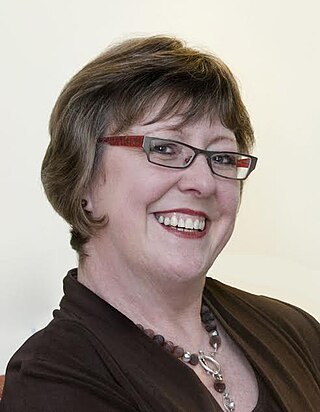The University of Maryland School of Medicine, located in Baltimore City, Maryland, U.S., is the medical school of the University of Maryland, Baltimore and is affiliated with the University of Maryland Medical Center and Medical System. Established in 1807 as the College of Medicine of Maryland, it is the first public and the fifth oldest medical school in the United States. UMB SOM's campus includes Davidge Hall, which was built in 1812, and is the oldest building in continuous use for medical education in the Northern Hemisphere.

Solomon Halbert Snyder is an American neuroscientist who has made wide-ranging contributions to neuropharmacology and neurochemistry. He studied at Georgetown University, and has conducted the majority of his research at the Johns Hopkins School of Medicine. Many advances in molecular neuroscience have stemmed from Snyder's identification of receptors for neurotransmitters and drugs, and elucidation of the actions of psychotropic agents. He received the Albert Lasker Award for Basic Medical Research in 1978 for his research on the opioid receptor, and is one of the most highly cited researchers in the biological and biomedical sciences, with the highest h-index in those fields for the years 1983–2002, and then from 2007 to 2019.

Patricia Goldman-Rakic was an American professor of neuroscience, neurology, psychiatry and psychology at Yale University School of Medicine. She pioneered multidisciplinary research of the prefrontal cortex and working memory.
Dr. David D. Ginty is an American neuroscientist and developmental biologist.
Richard Lewis Huganir is a Bloomberg Distinguished Professor in the Departments of Neuroscience and Psychological and Brain Sciences, Director of the Solomon H. Snyder Department of Neuroscience, and co-director of the Johns Hopkins Medicine Brain Science Institute at the Johns Hopkins University School of Medicine. He has joint appointments in the Department of Biological Chemistry and the Department of Pharmacology and Molecular Sciences in the Johns Hopkins School of Medicine.
Hugo Wolfgang Moser (1924–2007), was a Swiss-born American research scientist and director of the Neurogenetics Research Center at the Kennedy Krieger Institute. Moser was also University Professor of Neurology and Pediatrics at Johns Hopkins University. His research on peroxisomal disorders achieved international recognition.
Richard T. Johnson was a physician and scientist at the Johns Hopkins University School of Medicine. Johnson was a faculty member in the Department of Neurology since its inception in 1969 and was the former head of the department. His research into the effects of viruses on the central nervous system has been published in over 300 scientific articles, and Johnson was both a journal and book editor and the author of an influential textbook, Viral Infections of the Nervous System.

The Kennedy Krieger Institute is a nonprofit, 501(c)(3) tax-exempt, Johns Hopkins affiliate located in Baltimore, Maryland, that provides in-patient and out-patient medical care, community services, and school-based programs for children and adolescents with learning disabilities, as well as disorders of the brain, spinal cord, and musculoskeletal system. The Institute provides services for children with developmental concerns mild to severe and is involved in research of various disorders, including new interventions and earlier diagnosis.

Anne Buckingham Young is an American physician and neuroscientist who has made major contributions to the study of neurodegenerative diseases, with a focus on movement disorders like Huntington's disease and Parkinson's disease. Young completed her undergraduate studies at Vassar College and earned a dual MD/PhD from Johns Hopkins Medical School. She has held faculty positions at University of Michigan and Harvard University. She became the first female chief of service at Massachusetts General Hospital when she was appointed Chief of Neurology in 1991. She retired from this role and from clinical service in 2012. She is a member of many academic societies and has won numerous awards. Young is also the only person to have been president of both the international Society for Neuroscience and the American Neurological Association.

Charles Edward "Ed" Connor Jr. is an American neuroscientist who has made important contributions to the neuroscience of object synthesis in higher-level visual cortex. From 2009 he has been a Professor of Neuroscience at Johns Hopkins University. In 2007 Connor was appointed Director of the Zanvyl Krieger Mind Brain Institute at Johns Hopkins. Connor has interests in neuroaesthetics, the relation between neuroscience and beauty.

Professor Leeanne Carey is a world leading Australian neuroscientist in occupational therapy and stroke rehabilitation and recovery research. She is the founding leader of the Neurorehabilitation and Recovery research group in the Stroke division at the Florey Institute of Neuroscience and Mental Health in Melbourne, Australia, and currently holds a Future Fellowship awarded by the Australian Research Council (ARC).
Laurie Cutting is an American scholar of psychology and pediatrics. She is the Patricia and Rodes Hart Professor of Special Education, Psychology and Human Development, Radiology, and Pediatrics at Vanderbilt University. In addition, she is associate director of the Vanderbilt Kennedy Center and a member of the Vanderbilt Brain Institute, training faculty for Vanderbilt's Neuroscience Ph.D. program.

Lim Kah Leong, is a Singaporean neuroscientist and tenured full Professor and Vice Dean (Research) at the Lee Kong Chian School of Medicine, Nanyang Technological University (Singapore), where he is also a President's Chair Professor in Translational Neuroscience. He is concurrently the Research Director for Biomedical and Life Sciences at NTU. He was previously Chair of the Department of Physiology at the National University of Singapore, Singapore and the deputy director for research at the National Neuroscience Institute, Singapore. Dr. Lim is known for his research in Parkinson's Disease. His research focuses on unraveling the molecular mechanisms underlying neurodegenerative diseases, with the view to develop novel therapies aimed at effectively treating the disease.
Sridevi Sarma is an American biomedical and electrical engineer known for her work in applying control theory to improve therapies for neurological disorders such as Parkinson's disease and epilepsy. She is vice dean for graduate education of the Johns Hopkins University Whiting School of Engineering, associate director of the Johns Hopkins Institute for Computational Medicine, and an associate professor in the Johns Hopkins Department of Biomedical Engineering.

Susan Huganir Magsamen is an American academic, author and entrepreneur. She serves as executive director of the International Arts + Mind Lab, part of the Brain Science Institute at the Johns Hopkins School of Medicine. She also co-directs the Aspen Institute's NeuroArts BluePrint. She is a Fellow of the Royal Society of Arts and the creator of Impact Thinking, an interdisciplinary research model that combines the arts, science and health. Susan is the co-author of the New York Times bestselling book Your Brain on Art: How the Arts Transform Us with Ivy Ross. This book shares the science behind humanities birthright - to make and behold art and it's power to amplify physical and mental health, learning and build stronger communities.

Alex Leo Kolodkin is an American neuroscientist. He is the Charles J. Homcy and Simeon G. Margolis Professor in the Department of Neuroscience at the Johns Hopkins University School of Medicine.
Hongjun Song is a Chinese-American neurologist and stem cell biologist. He is the Perelman Professor of Neuroscience in the Perelman School of Medicine's Department of Neuroscience and co-director of the Institute for Regenerative Mediacine Neurodevelopment and Regeneration Program. In 2020, Song was elected a Member of the National Academy of Medicine for "revealing unexpected dynamics and plasticity of the neuronal epigenome, as well as its functions under physiological and pathological conditions."
Barry J. Gordon is an American behavioral neurologist and cognitive neuroscientist. He is the inaugural holder of the therapeutic cognitive neuroscience endowed professorship and a professor of neurology with a joint appointment in cognitive science at the Johns Hopkins School of Medicine.
Mary Elizabeth Blue is an American neurobiologist and computational neurologist. She is an associate professor of neurology and neuroscience at the Johns Hopkins School of Medicine and a research scientist in the neuroscience laboratory at Kennedy Krieger Institute.









